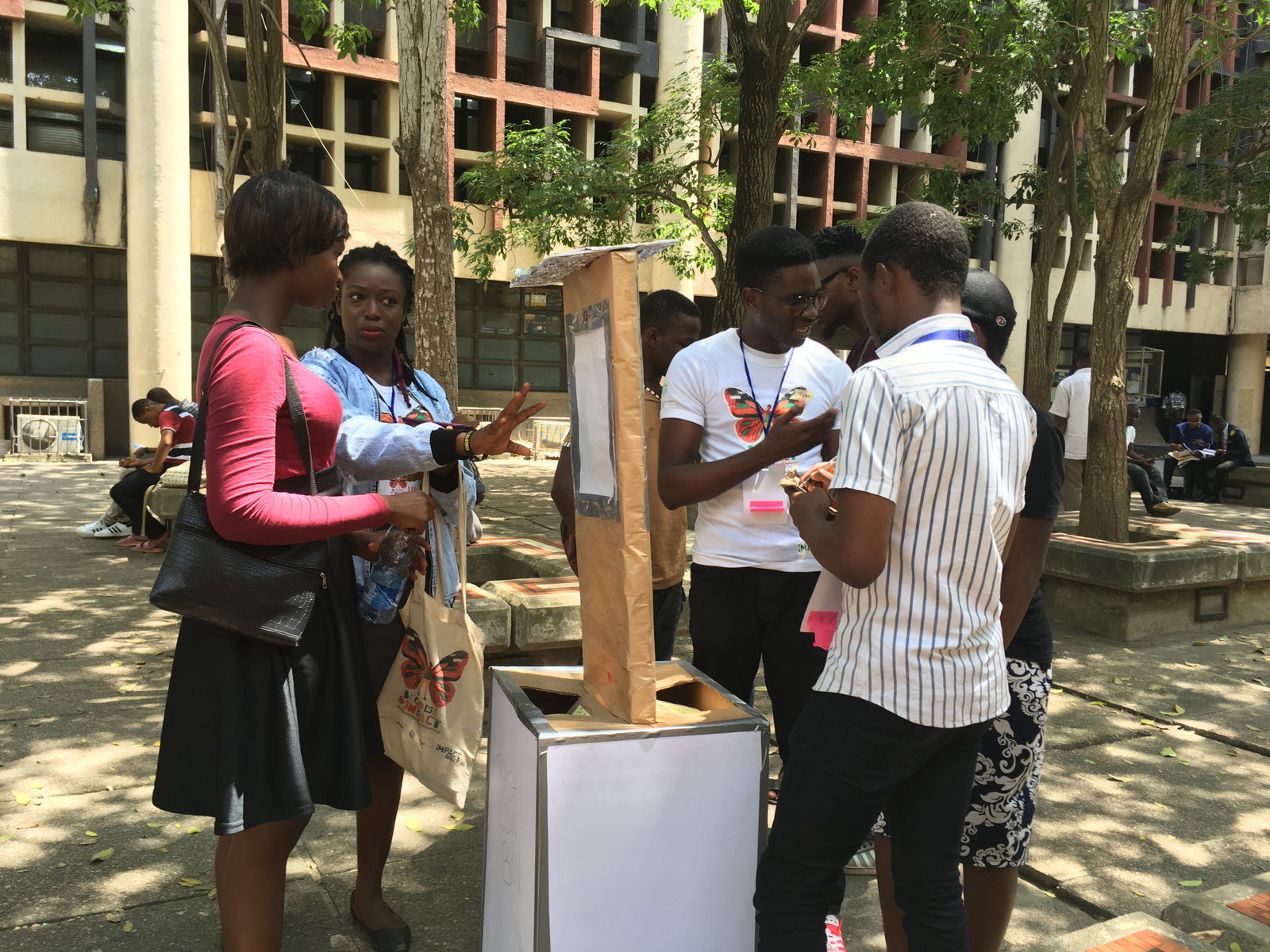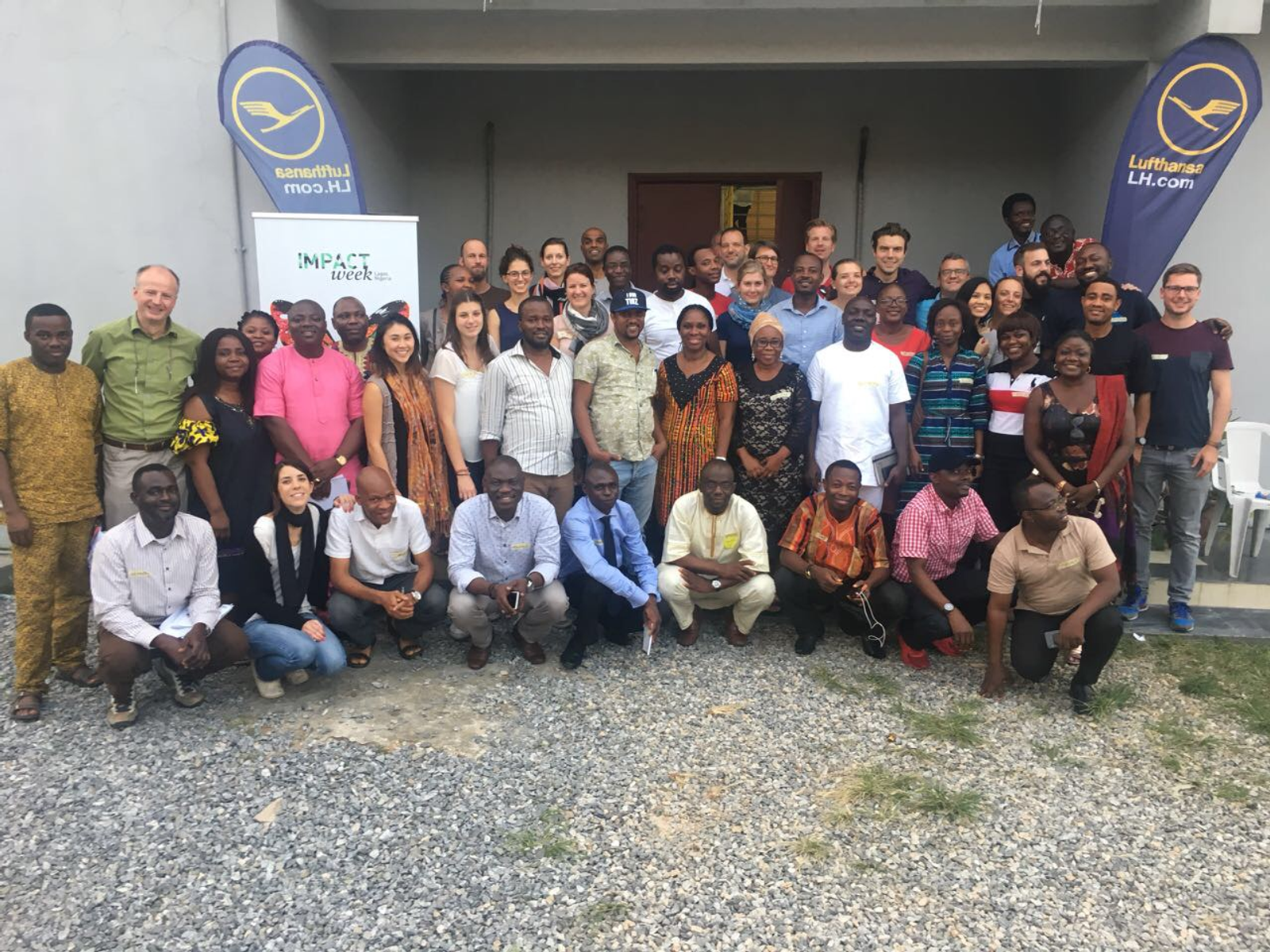Impact Week — A Design Thinking Event at University of Lagos
How can Design Thinking offer more entrepreneurial agency and cultural exchange? After two successful years working with students in Nairobi, it was time to bring Impact Week to Lagos - the Innovation Capital of Western Africa.
The Impact Week introduces Design Thinking to students and academic staff throughout a ten-day event. All Impact Weeks start with Train-the-trainer workshops. During this two-day event, all trainers go through the Design Thinking process the same way the students will be during the main Impact Week event, in which teams of students tackle real-life problems with user-centered-design approaches.
The final Impact Week of 2017 was hosted by UNILAG (University of Lagos) in the newly established Center for Innovation, which’s mission is to support students with entrepreneurial ambitions. Overall 156 students from various departments within the university participated. Additionally, several professors trained in Design Thinking and supported the student teams during Impact Week.
We are excited to have a team of UNILAG professionals, Lufthansa international staff and other experts come together with around 200 students to develop their skills, broaden and take on the tasks of thinking about solutions for socio-economic challenges right here.
11 employees from Lufthansa Group, as well as 9 international experts, ventured to Lagos and were joined by 6 local Lufthansa colleagues to train as Design Thinking coaches and collaborate with professors and students from UNILAG.
Tracks:
Students joining the program were asked to form teams and choose one of the following tracks as the problem space for their team.
- Tourism: With little to almost non-existing tourism, students in this track focused on how to attract tourists to Nigeria to create additional income sources for locals.
- Finance: New services around finance often prove to be profitable for the service provider. Teams on this track were asked to explore ideas on financial topics which were profitable but also have a lasting impact on everyday life in Nigeria.
- Technology: Lagos is often called the Silicon Valley of West Africa, so the technology track is a natural given. Students in this track explored new possibilities for services, products, and solutions arising from emerging technologies.
- Education: Access to education is the key to moving a country forward. Participants in this track focused on ideas in the wider realm of offering people new perspectives and skills which have a mobilizing and stabilizing effect on their daily lives.
- Commerce: Having a strong commercial tradition as part of its culture, the commercial track is a must for a Nigerian Impact Week. Teams in this track focused on ideas that cater to local commerce and market structures.
- Health: All over the world health is a major topic. Nigeria has its very own challenges e.g. diseases such as Malaria. Students in this track addressed health issues and ideated solutions for treatment, nursing, and care in local communities.
Impressions
About Impact Week
Impact Week is a non-profit program that unites people from a variety of countries and organizations. It promotes innovation and entrepreneurship skill progression in developing and emerging economies as a foundation for sustainable growth by establishing sustainable business models using Design Thinking. It equips the next generation for employment, to become inspiring leaders – successful agripreneurs, entrepreneurs, and game-changers, regardless of their field or level of expertise.
Press and article
-
pressLufthansa partners UNILAG on Youth Impact Week @ Frank NewsProject »Impact Week« featured on Frank News2017-10
-
pressImpact Week 2017 – Lufthansa to Train 200 Unilag Students @ Brand SpurProject »Impact Week« featured on Brand Spur2017-10
-
pressLufthansa Partners UNILAG For Youth Impact Week 2017 @ Abel NewsProject »Impact Week« featured on Abel News2017-10
-
articleThree impact weeks in Nigeria, Rwanda and Colombia to begin in fall @ help allianceArticle »Three impact weeks in Nigeria, Rwanda and Colombia to begin in fall« @ help alliance, online2017-07
-
pressLufthansa partners UNILAG on Youth Impact Week @ Frank NewsProject »Impact Week« featured on Frank News2017-10
-
pressLufthansa Partners UNILAG For Youth Impact Week 2017 @ Abel NewsProject »Impact Week« featured on Abel News2017-10
-
pressImpact Week 2017 – Lufthansa to Train 200 Unilag Students @ Brand SpurProject »Impact Week« featured on Brand Spur2017-10
-
articleThree impact weeks in Nigeria, Rwanda and Colombia to begin in fall @ help allianceArticle »Three impact weeks in Nigeria, Rwanda and Colombia to begin in fall« @ help alliance, online2017-07
-
pressLufthansa partners UNILAG on Youth Impact Week @ Frank NewsProject »Impact Week« featured on Frank News2017-10
-
articleThree impact weeks in Nigeria, Rwanda and Colombia to begin in fall @ help allianceArticle »Three impact weeks in Nigeria, Rwanda and Colombia to begin in fall« @ help alliance, online2017-07











